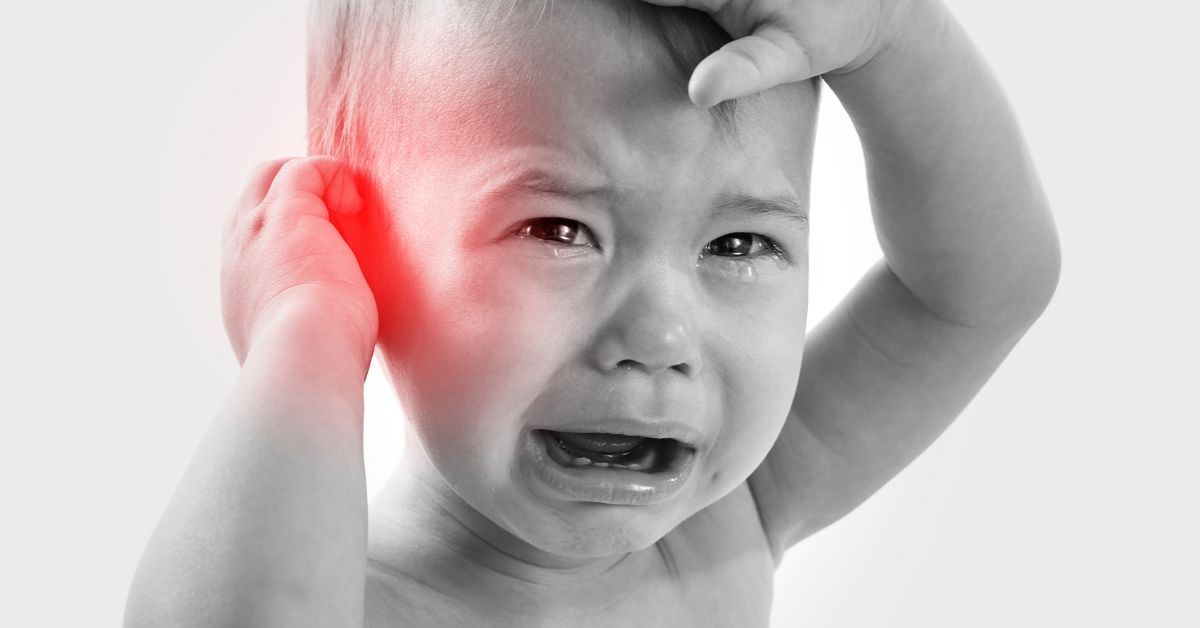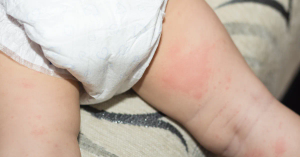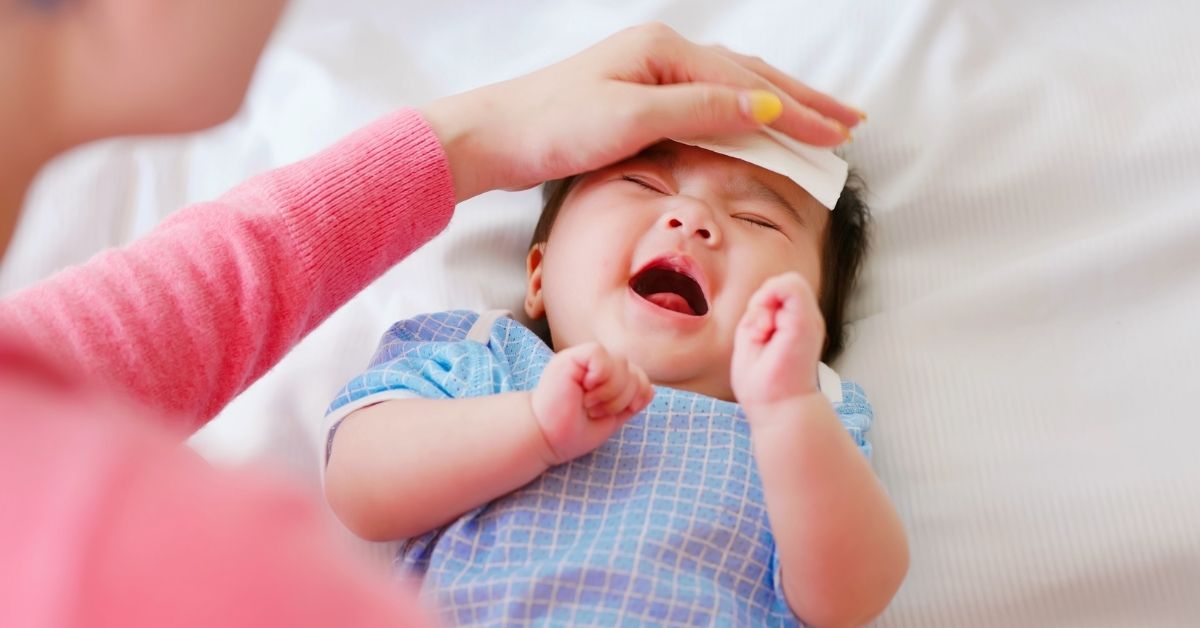Ear infections are a common concern for parents, especially with young babies. These infections occur in the middle ear, the air-filled space behind the eardrum. The Eustachian tube, a narrow passage that connects the middle ear to the back of the nose and throat, helps drain fluid from the middle ear. When this tube becomes blocked due to a cold, allergies, or other illness, fluid can build up in the middle ear, leading to infection.
While ear infections can be uncomfortable for babies, the good news is that they are usually treatable and rarely cause lasting problems. This blog post will equip you with the knowledge to handle and prevent ear infections in your little one.
Understanding Ear Infections
An ear infection, or acute otitis media (AOM), is an inflammation of the middle ear caused by bacteria or viruses. When the eustachian tube, which connects the middle ear to the back of the throat, becomes swollen or blocked, fluid can build up behind the eardrum, leading to pain and infection.
Symptoms of Ear Infections
The most common symptoms of an ear infection in babies include:
- Irritability
- Difficulty sleeping
- Tugging or pulling at the ear
- Fever
- Fluid draining from the ear
- Loss of balance
- Hearing difficulty
If your baby is experiencing any of these symptoms, it’s important to contact your pediatrician for proper diagnosis and treatment.
Preventing Ear Infections
While not all ear infections can be prevented, there are several steps you can take to reduce your baby’s risk:
- Vaccinate your child against the flu and pneumococcal infections. These vaccines can help prevent the viruses and bacteria that often lead to ear infections.
- Breastfeed your baby for at least the first three months of life. Breast milk contains antibodies that can help boost your baby’s immune system and reduce the risk of ear infections.
- Keep your baby away from secondhand smoke. Avoid smoking around your baby and limit exposure to secondhand smoke in public places.
- Wash your hands and your baby’s hands often. Good hand hygiene helps prevent the spread of germs that can cause ear infections.
- Keep your baby upright when feeding them from a bottle. Lying down with a bottle can allow milk or formula to enter the eustachian tube, increasing the risk of infection.
- Do not allow water to enter ears of the baby
Treating Ear Infections
If your baby does develop an ear infection, your pediatrician may recommend:
- Over-the-counter pain relievers to ease discomfort and reduce fever
- Antibiotic medications if the infection is severe or if your baby is under 6 months old
- Prescription ear drops to help reduce pain and inflammation
Sometimes, your pediatrician may recommend a “wait-and-see” approach, especially if your baby is older and the infection is mild. This allows the body to fight off the infection naturally while managing symptoms with pain relievers.
If your baby experiences frequent ear infections or if fluid remains in the middle ear for an extended period, your pediatrician may recommend ear tubes. This minor surgical procedure involves placing small tubes in the eardrum to allow air into the middle ear and allow fluid to drain.
When to Seek Medical Attention
Contact your pediatrician immediately if your baby:
- Has a fever of 102.2°F (39°C) or higher
- Experiences severe pain or discomfort
- Has fluid draining from the ear
- Seems to have hearing loss or balance issues
In most cases, ear infections will resolve on their own or with proper treatment. However, it’s important to monitor your baby’s symptoms and seek medical attention if they worsen or don’t improve within a few days.
A Final Note
Ear infections are a common childhood concern, but with proper knowledge and prompt medical attention, they can be effectively managed. By following these preventative measures, you can help keep your little one’s ears healthy and happy. Remember, if you have any questions or concerns about your baby’s health, always consult your pediatrician.








